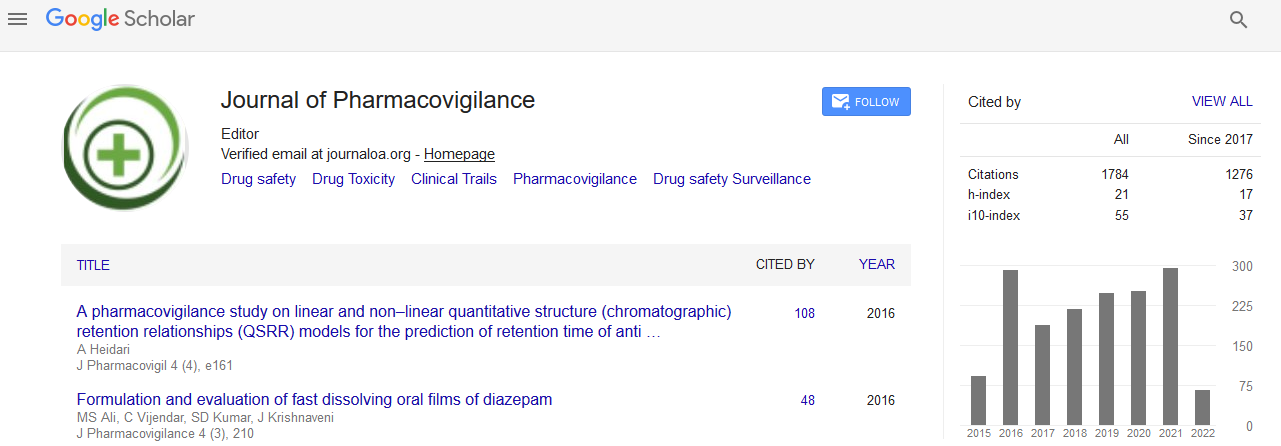Indexed In
- Open J Gate
- JournalTOCs
- The Global Impact Factor (GIF)
- RefSeek
- Hamdard University
- EBSCO A-Z
- OCLC- WorldCat
- Publons
- Euro Pub
- Google Scholar
Useful Links
Share This Page
Journal Flyer

Open Access Journals
- Agri and Aquaculture
- Biochemistry
- Bioinformatics & Systems Biology
- Business & Management
- Chemistry
- Clinical Sciences
- Engineering
- Food & Nutrition
- General Science
- Genetics & Molecular Biology
- Immunology & Microbiology
- Medical Sciences
- Neuroscience & Psychology
- Nursing & Health Care
- Pharmaceutical Sciences
Abstract
The Challenges of Adverse Drug Reaction Evaluation
Prevention of adverse drug reactions (ADRs) is the essence of Pharmacovigilance and its precise diagnosis is crucially a primary step, which still remains a challenge among specialists. The objective here is to investigate and offer a notion of commonly used and the developed methods of causality assessment tools for the diagnosis of ADRs and discuss their pros and cons. There are several recognized ways for assessment methods with decisive factors of causality evaluation, all the information regarding reasons allocating causality, the advantages and limitations of the appraisal methods were extracted and evaluated. Expert judgment is typically based on the decisive factor on which algorithms are based, nevertheless in imprecise manner. The probabilistic methods use the similar principle; however, connect probabilities to each measure. Such approaches are quite skeptical and liable to generate cloudy causation results. The final evaluation is quite intricate due to numerous inherent shortcomings in causality assessment tools. Thus we are still looking for developing a high quality assessment tool (very specific, but at the same time, sensitive enough) which can meticulously establish suitable diagnostic criteria for ADRs with universal acceptance to improvise the fundamental aspect of drug safety.


